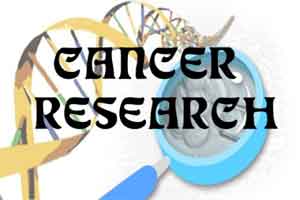- Home
- Medical news & Guidelines
- Anesthesiology
- Cardiology and CTVS
- Critical Care
- Dentistry
- Dermatology
- Diabetes and Endocrinology
- ENT
- Gastroenterology
- Medicine
- Nephrology
- Neurology
- Obstretics-Gynaecology
- Oncology
- Ophthalmology
- Orthopaedics
- Pediatrics-Neonatology
- Psychiatry
- Pulmonology
- Radiology
- Surgery
- Urology
- Laboratory Medicine
- Diet
- Nursing
- Paramedical
- Physiotherapy
- Health news
- Fact Check
- Bone Health Fact Check
- Brain Health Fact Check
- Cancer Related Fact Check
- Child Care Fact Check
- Dental and oral health fact check
- Diabetes and metabolic health fact check
- Diet and Nutrition Fact Check
- Eye and ENT Care Fact Check
- Fitness fact check
- Gut health fact check
- Heart health fact check
- Kidney health fact check
- Medical education fact check
- Men's health fact check
- Respiratory fact check
- Skin and hair care fact check
- Vaccine and Immunization fact check
- Women's health fact check
- AYUSH
- State News
- Andaman and Nicobar Islands
- Andhra Pradesh
- Arunachal Pradesh
- Assam
- Bihar
- Chandigarh
- Chattisgarh
- Dadra and Nagar Haveli
- Daman and Diu
- Delhi
- Goa
- Gujarat
- Haryana
- Himachal Pradesh
- Jammu & Kashmir
- Jharkhand
- Karnataka
- Kerala
- Ladakh
- Lakshadweep
- Madhya Pradesh
- Maharashtra
- Manipur
- Meghalaya
- Mizoram
- Nagaland
- Odisha
- Puducherry
- Punjab
- Rajasthan
- Sikkim
- Tamil Nadu
- Telangana
- Tripura
- Uttar Pradesh
- Uttrakhand
- West Bengal
- Medical Education
- Industry
Nobel Prize for Medicine 2018 awarded for Cancer Research

STOCKHOLM: American James Allison and Japanese Tasuku Honjo won the 2018 Nobel Prize for Physiology or Medicine for discoveries leading to new approaches in harnessing the immune system to fight cancer, the award-giving body said recently.
"Allison and Honjo showed how different strategies for inhibiting the brakes on the immune system can be used in the treatment of cancer," the Nobel Assembly at Sweden's Karolinska Institute said, on awarding the prize of 9 million Swedish crowns ($1 million).
Medicine is the first of the Nobel Prizes awarded each year. The prizes for achievements in science, literature and peace were created in accordance with the will of dynamite inventor and businessman Alfred Nobel and have been awarded since 1901.
The literature prize will not be handed out this year after the awarding body was hit by a sexual misconduct scandal.
Both laureates studied proteins that prevent the body and its main immune cells, known as T-cells, from attacking tumour cells effectively.
Allison, Professor at the University of Texas MD Anderson Cancer Center, studied a protein that functions as a brake on the immune system and realised the potential for unleashing immune cells to attack tumours if the brake could be released.
Honjo, Professor at Kyoto University since 1984, separately discovered a second protein on immune cells and revealed that it too operated as a brake, but with a different mechanism.
"The seminal discoveries by the two Laureates constitute a landmark in our fight against cancer," the institute said.
"Allison and Honjo showed how different strategies for inhibiting the brakes on the immune system can be used in the treatment of cancer," the Nobel Assembly at Sweden's Karolinska Institute said, on awarding the prize of 9 million Swedish crowns ($1 million).
Medicine is the first of the Nobel Prizes awarded each year. The prizes for achievements in science, literature and peace were created in accordance with the will of dynamite inventor and businessman Alfred Nobel and have been awarded since 1901.
The literature prize will not be handed out this year after the awarding body was hit by a sexual misconduct scandal.
Both laureates studied proteins that prevent the body and its main immune cells, known as T-cells, from attacking tumour cells effectively.
Allison, Professor at the University of Texas MD Anderson Cancer Center, studied a protein that functions as a brake on the immune system and realised the potential for unleashing immune cells to attack tumours if the brake could be released.
Honjo, Professor at Kyoto University since 1984, separately discovered a second protein on immune cells and revealed that it too operated as a brake, but with a different mechanism.
"The seminal discoveries by the two Laureates constitute a landmark in our fight against cancer," the institute said.
Garima joined Medical Dialogues in 2017 and currently works as the Senior Editor. She oversees coverage of all healthcare topics, with a focus on medico-legal cases, regulatory updates, decisions by NMC, DCI and medical councils, developments in medical education, government policies, and news on medical and dental colleges. She holds a Master’s degree in Journalism and Mass Communication and can be contacted at editorial@medicaldialogues.in | 011-43720751.
Next Story


